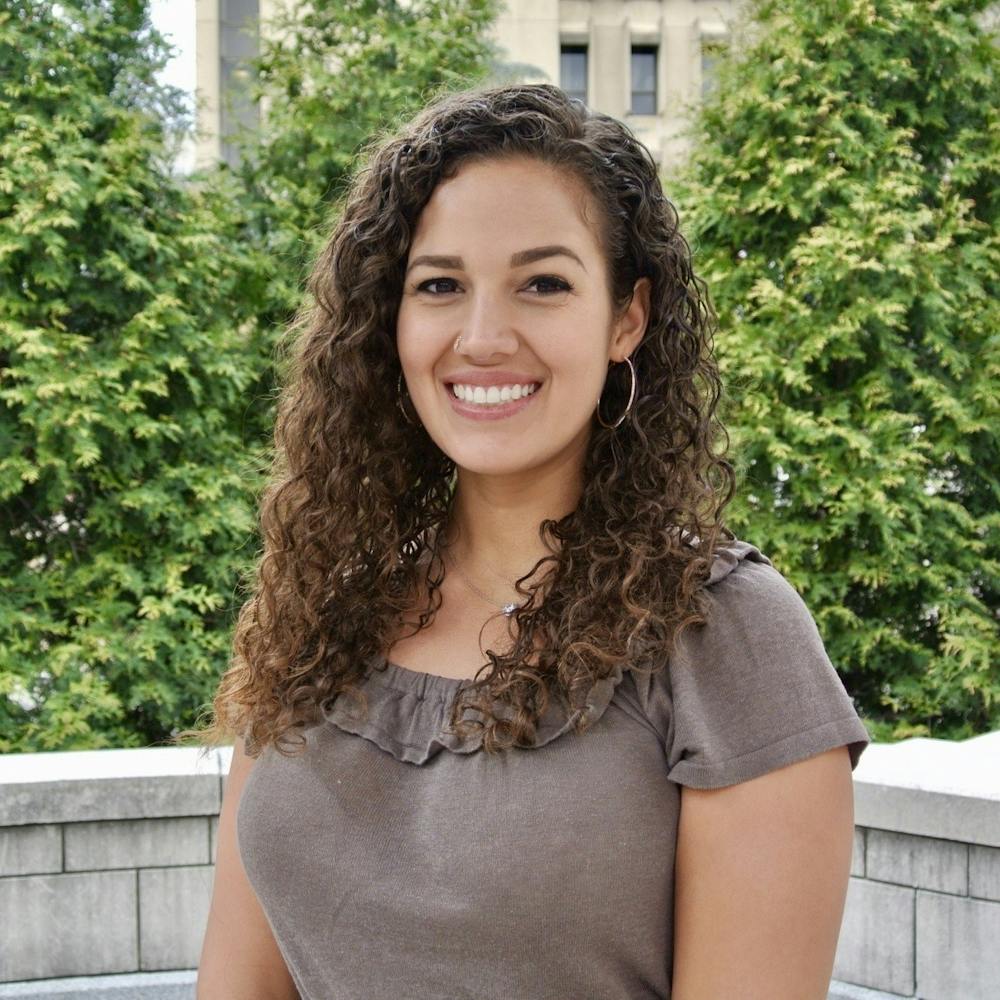Elizabeth Rule fell in love with D.C. when she began interning for her tribe. As an enrolled citizen of the Chickasaw Nation, she found herself involved in Indigenous activism, advocacy and policy work opportunities available in the District.
Rule set out to acknowledge a multitude of culturally significant Indigenous sites in D.C. through a mobile app that she created in July 2019. The app, Guide to Indigenous DC, maps 17 sites of Indigenous importance in the nation’s capital. The app has grown from an educational tool to reach the D.C. tourist market and broad K-12 and higher education audiences.
“The goal is to demonstrate to the broad public that Washington D.C. is built on Indigenous land,” Rule said. “And to illuminate the history of Native people in this area as well as the contemporary Native community in this area and really confront myths of erasure and invisibility that we face as Native people.”
Rule’s app is only one part of her work and research. After graduating from Yale University, she went on to earn her M.A. and Ph.D. from Brown University in American Studies, later holding a position as a postdoctoral fellow at American University’s Critical Race, Gender and Culture Studies Collaborative.
Rule was then hired as part of the inaugural staff at George Washington University’s AT&T Center for Indigenous Politics and Policy, where she serves as director, in addition to her roles as an assistant professor of professional studies, director of the Semester in Washington Politics Program and faculty in residence.
Rule’s work centers on bringing attention to issues of invisibility and gender-based violence in Indigenous communities. With two book manuscripts in the works, she is using her academic platforms to raise awareness. Her work has received media attention, including her guest appearance on “Queer Eye” star Jonathan Van Ness’s podcast, “Getting Curious,” in October.
“One of the big misunderstandings about who Native people are and what we do and how we’re organized is that we are racialized minorities, but we’re also citizens of sovereign tribal nations,” Rule said. “Our tribal nations have a government-to-government relationship with the federal U.S. government. And for that reason, there is a lot of policy, legislative, legal and advocacy work that happens between tribal leaders from all over the country in D.C.”
While one of Rule’s manuscripts focuses on expanding the work of her D.C.-centric app, the other discusses gender-based violence in Indigenous communities.
“What I’m trying to do there is intervene in our current discourse on missing and murdered Indigenous women and the really important conversations that are happening about gender-based violence in Indigenous communities,” Rule said. “We need to seriously reconsider reproductive justice and this history of reproductive injustice and considering the violence confronting our Native women both historically and in the contemporary moment.”
As a former fellow at AU, Rule advocates for higher education institutions to do more to support Indigenous communities. She said Native students at such institutions face issues of invisibility and a lack of representation.
“Oftentimes what we see at predominately white institutions like AU is that there are Indigenous students but they are not very visible,” Rule said. “Our population is relatively small in general, so our representation in predominantly white institutions tends to be small. But small doesn’t mean insignificant and that doesn’t mean our students don’t matter.”
Rule said that stereotypes about Native people also contribute to their invisibility.
“Oftentimes people assume that they know someone is Native by the way they look or they assume that Native people dress a particular way or have a particular phenotype, and that’s just not true. We are white, are Black, are brown,” Rule said. “Sometimes that contributes to our erasure because if people don’t see that stereotypical image of a Hollywood Native, they maybe think that there aren’t Native people when of course there are.”
Native students also face challenges when trying to start student groups, as they often do not meet quotas to start organizations, even if they do manage to find each other. Rule also worries about the number of Native students living in rural areas without internet access.
Rule said that there is still work to be done in the area of Indigenous studies; with such vast histories, Indigenous subject matter still leaves lots to be discovered. Rule said she looks forward to working on topics involving colonialism, Indigenous women and two-spirit and LGBTQ+ Indigenous communities.
Rule, who interviewed with The Eagle during National Native American Heritage Month, reminds people that research and issues regarding contemporary Indigenous communities must continue beyond November.
“I always emphasize that Native cultures and topics cannot be relegated only to the past,” Rule said. “Native American Heritage Month is a great awareness-raising mechanism for that, but I would caution folks against using this month as the only opportunity to talk about Native people. It’s important that these issues are talked about on a public platform 365 days a year, because they affect Native communities 365 days a year.”





